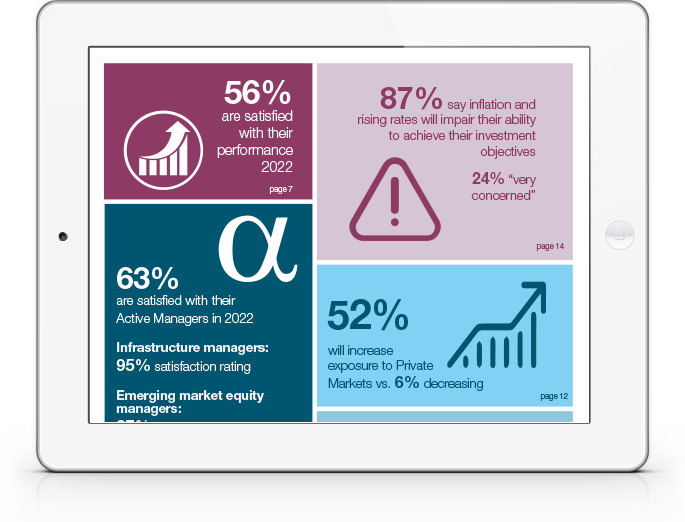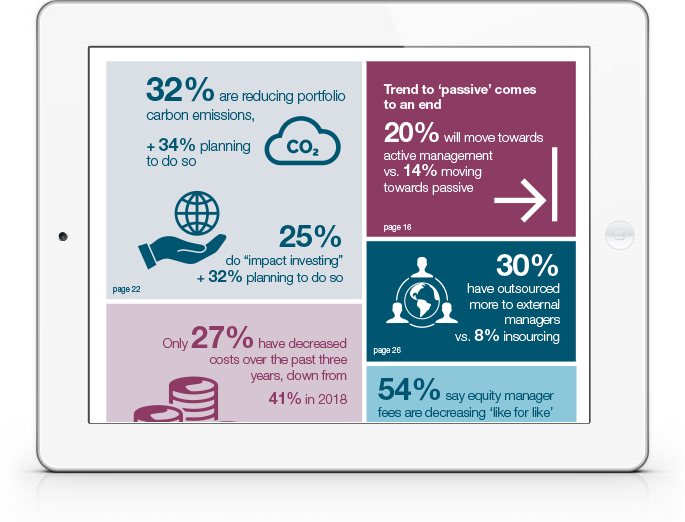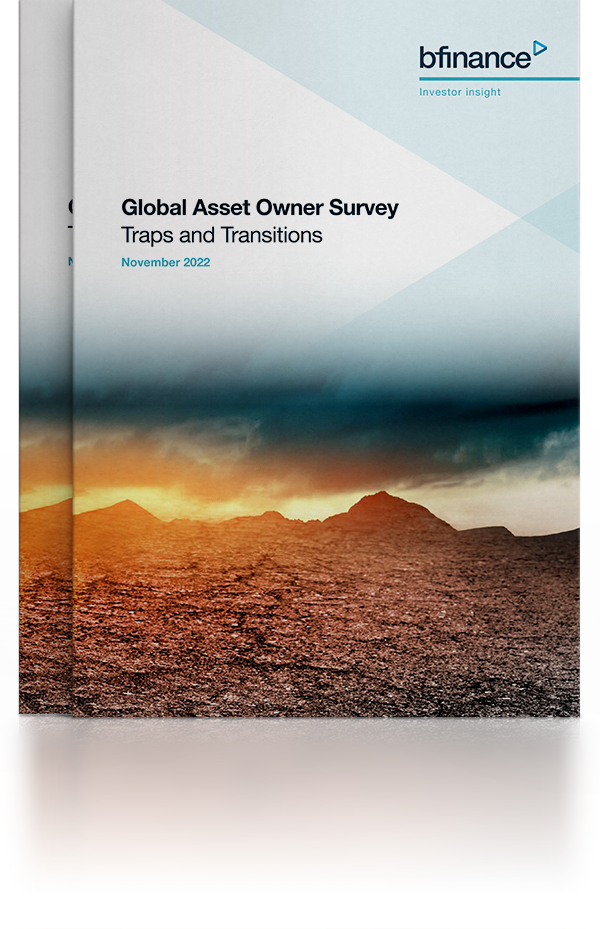
IN THIS PAPER
A year of turmoil. Just 56% of asset owners are satisfied with their performance so far in 2022, while 63% are happy with their active managers. The highest ‘satisfaction rating’ scores go to Infrastructure managers; the lowest to Emerging Market Equity managers (37%).
Reorienting investment portfolios. 52% will increase exposure to private market strategies over the next 18 months (6% decreasing), with declines in equity allocations expected. Data covers changing inflation sensitivity, LDI shifts, the end of the passive trend, illiquidity challenges and more.
The ESG imperative. A challenging period has not weakened the trends in favour of carbon measurement/reduction, impact investing and more: 32% are currently reducing carbon emissions associated with the investment portfolio; a further 34% are planning to do so.
Resourcing and costs. The overall cost-reduction trend highlighted in the 2018 study has come to an end, despite investors reporting falling fees in many asset classes. 30% have increased the proportion outsourced to external managers in the past three years.

WHY DOWNLOAD?
The year 2022 has found many investors in ‘Catch-22’ debates. Do we boost ‘inflation sensitivity’, like 43% of respondents in this study, even though relevant asset classes may increase our sensitivity to recession and/or reduce our liquidity? Do we make fresh commitments to private markets strategies, with received wisdom promising strong upcoming vintages, when this may leave us more constrained amid future liquidity squeezes? Do we move to benefit from today’s higher rates in fixed income, despite vulnerability to future rate rises?
Looking at long-term themes, some of the most notable trends of the post-GFC era appear to have stalled, if not reversed. Other post-GFC trends are still very much in force, or even reinforced. And, just as the GFC set the stage for a decade of change, it appears likely that investors’ ability to ride out the current (as-yet-unnamed) period of upheaval will shape their priorities and portfolios going forward. We hope that these findings provide actionable food for thought, both for investors that are navigating through challenging terrain and for the asset managers and other providers who should serve the interests of the asset owner community.
Important Notices
This commentary is for institutional investors classified as Professional Clients as per FCA handbook rules COBS 3.5R. It does not constitute investment research, a financial promotion or a recommendation of any instrument, strategy or provider. The accuracy of information obtained from third parties has not been independently verified. Opinions not guarantees: the findings and opinions expressed herein are the intellectual property of bfinance and are subject to change; they are not intended to convey any guarantees as to the future performance of the investment products, asset classes, or capital markets discussed. The value of investments can go down as well as up.


 English (Global)
English (Global)  Deutsch (DACH)
Deutsch (DACH)  Italiano (Italia)
Italiano (Italia)  Dutch (Nederlands)
Dutch (Nederlands)  English (United States)
English (United States)  English (Canada)
English (Canada)  French (Canada)
French (Canada) 

